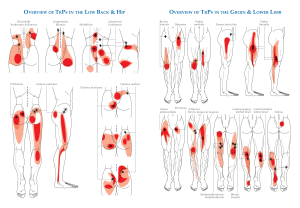How To Overcome Isolation Caused By Chronic Back Pain

Category: | Author:
It’s easy to overlook some of the non-physical ways that back pain can disrupt your life. It may be obvious that physical pain can make it difficult for you to get out of bed in the morning, but what doesn’t always get talked about is how these forced changes to your daily life can impact your mental and emotional health. Back pain can be extremely isolating, and if these feelings are not appropriately managed, they can make it harder for you to overcome your physical issues. In today’s blog, we explore some of the ways to combat loneliness and isolation that can be a byproduct of chronic back pain.
Managing Isolation While Treating Your Back Pain
Back pain can leave you feeling isolated from friends, family and your coworkers for a number of reasons. For starters, nobody else truly knows what you are going through, so it can be difficult for others to empathize with your plight. Also, back pain typically isn’t an obvious injury like a broken ankle or stitches on your arm, and some people may wrongly assume you are not in as much discomfort as you claim. Back pain can also limit you physically and keep you from activities with friends and family, leaving you feeling left out.
However, it doesn’t have to be this way if you are aware of these challenges and take a few steps to overcome these feelings of isolation. Here’s what we recommend.
- Proactive Treatment – For starters, you’re going to want to throw yourself into an active care management plan. If you’re not actively working to improve your condition, your physical issue isn’t going to improve, and there’s no reason to expect your feelings of isolation to dissipate. Before you really dive into the isolation issue, make sure that you have a plan in place to treat the underlying physical issue. This will also help your mental health, as you’ll know that you are doing what you can to treat your physical back pain.
- Get Outside– While television and the internet can be entertainment sources for us all, don’t rely heavily on these activities while you’re working to overcome back pain and isolation. Get up off the couch, get outside and move your body. Not only will this help your physical health, but it will also be mentally and emotionally stimulating. Take your dog for a daily walk, or reach out to a friend or family and walk around the neighborhood. Get outside and get moving.
- Make Plans– When you are in control of plans, it can be a little easier to curtail activities to your physical limitations. Make plans with friends that suit your capabilities and are something you can do even on a bad day. Plan a trip to the movies or pick out a close and comfortable lunch spot to meet a friend. It can be easier to reject plans when others spring them on you, but if you push to make the plans, you can have more confidence that your back pain won’t interrupt your outing.
- Find Somewhere To Vent – It can also be very refreshing and take a load off your mind to speak freely about your back pain and the difficulties you’re facing. If you can talk about your back pain to a spouse, a sibling or a friend, take a few minutes to vent and get it out of your system. If you don’t have anyone close that you want to vent to, connect with an in-person or online support group in your area. There are many back pain sufferers out there who can empathize with your situation and would be more than happy to listen to your concerns and offer solutions if you’re interested. Find someone or some group where your voice can be heard.
- Practice Mindfulness Techniques– Finally, consider adding some meditation or deep breathing exercises to your daily routine. These mindfulness-based practices can help reframe how our brain interprets stress or isolation, and it can help you better understand how to overcome the challenges you are facing. Again, it’s not always about managing physical issues. Take time to clear your head and relax, and you may find that outside worries are less burdensome. If you need help starting any mindfulness-based practice, let our team help!
You don’t have to treat chronic back pain on your own. Instead, connect with Dr. Sinicropi and the team at The Midwest Spine & Brain Institute today at (651) 430-3800 to get set up with an individualized care plan. Give our team a call today for more information or to set up that first appointment.
Related




